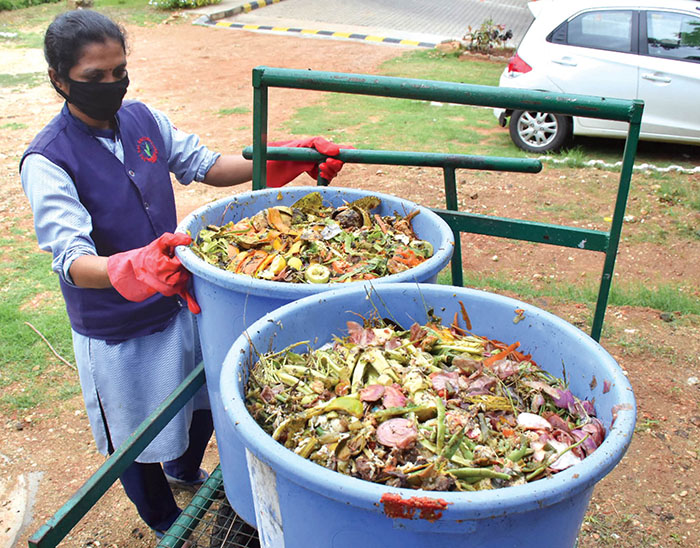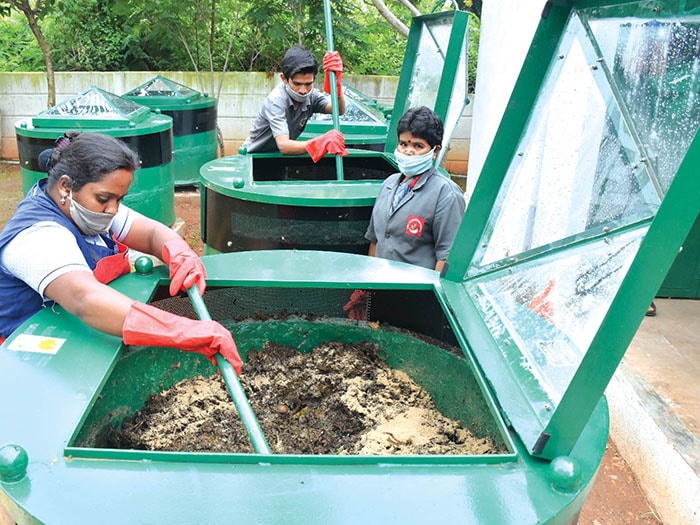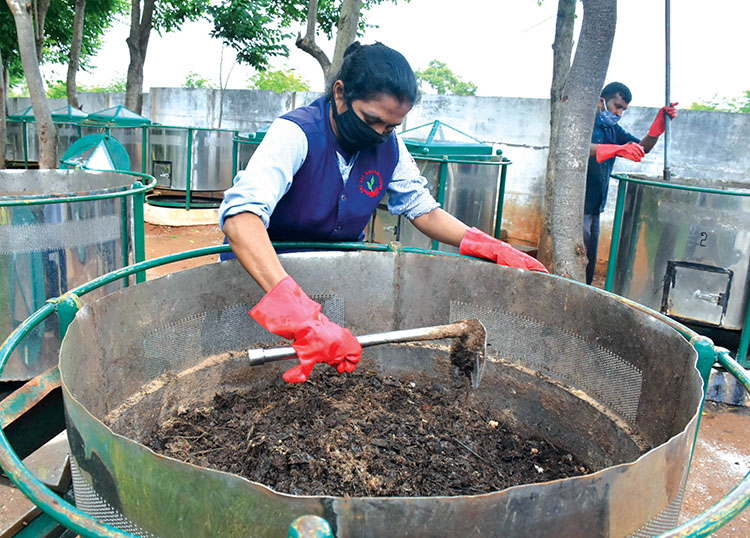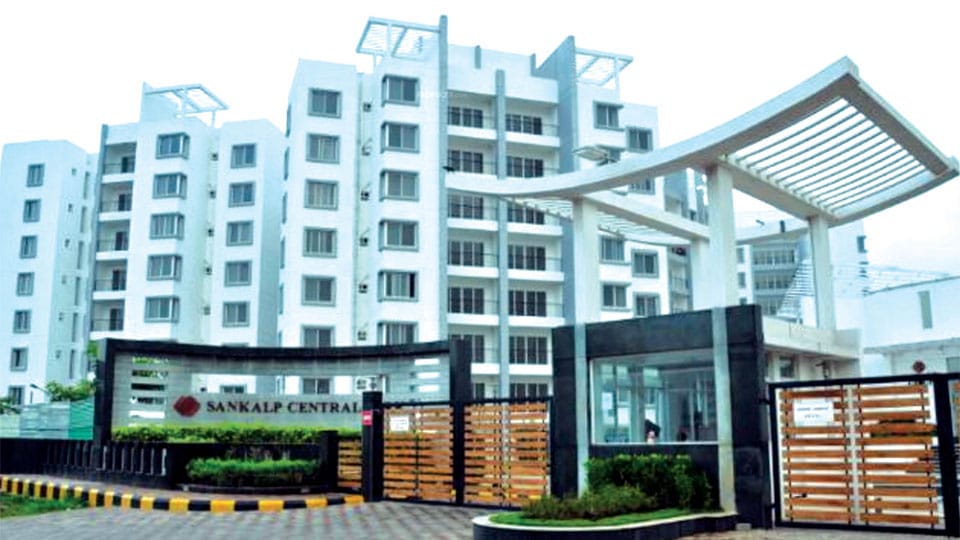Mysore/Mysuru: Across Mysuru, apartments have been popping up like mushrooms over the years. This poses several challenges to the city, including waste management. Though the Mysuru City Corporation (MCC) has introduced many rules that require apartments to manage their own waste, not all apartments follow these.
However, the solution could be quite simple if segregation of dry and wet waste is done and disposed of in a proper way. While the dry waste can be handed over to the Pourakarmikas on a weekly basis, kitchen waste can be turned into compost at backyards — a carry in and carry out philosophy.
This system has been efficiently implemented at the Sankalp Central Park Apartments at Yadavagiri in city. Residents have not given away any wet waste to Pourakarmikas since months. Instead, they use the waste to grow gardens in their Apartment and even market the manure to earn handsome revenues.

Wet waste and coco peat
The compost is created using the wet waste and coco peat (a multi-purpose growing medium made out of coconut husk). There are over 560 flats in the Sankalp Central Park Apartment complex and at present, over 450 people stay there. They have formed a self-reliant “Sankalp Central Park Apartment Owners’ Welfare Association” and carry out various activities including systematic compost-making.

Every day, over 250 to 300 kg wet waste is generated here and the waste is stored in the garbage collection room. The waste collected for three days are then put into a grinding machine and then mixed with coco peat. “The mixture is then left in that state for 15 days for natural fermentation and then compost mix is prepared,” Chida Shivanna, President of Sankalp Central Park Apartment Owners’ Welfare Association, told Star of Mysore.
60,000 kg of compost
The mix is later filled to 35 kg bags and buried in four 6X6 feet pits and the pits are covered to make it air-tight. “After 30 days, black compost is generated in the pits. We use some of the manure to grow our garden and also sell it for Rs. 6 per kg. Every year, we generate over 60,000 kg of compost and we have six workers dedicated to the job,” Chida Shivanna explained.

Segregation is the most important part in waste management. It means segregating waste into dry and wet waste so that they are not mixed. Waste segregation is necessary as only then it is possible to recycle the dry waste and compost the wet waste. “Compost is rich in nutrients and can be used in gardens, landscaping, horticulture and agriculture. There is a huge demand for the compost we sell,” he said.
The initiative is actively supported by Secretary of Sankalp Central Park Apartment Owners’ Welfare Association Nandita Chandra, Treasurer Jayaram, Garbage Management In-charge Lakshmi Akhela and all residents.








Fantastic article! The reporter has done an excellent job bringing instant credibility to the article with the supporting pictures. All the text would have not garnered as much attention as this article deserves but for the tact of the reporter who has used minimal words and supported the artcile with excellent and relevant pictures to provide the maximum effect. This is the type of reporting that ‘Star of Mysore’ should demand of its reporting staff.
KUDOS to the Pourakarmikas for diligently discharing their duties and taking pride in their work. All work done with dignity will be appreciated and these people are to be commended.
A big THANK YOU to the residents of the apartment complex, first for following rules that the city has established for everyone to obey and realizing that as a dutiful citized each of us has to play a part for the good of the collective group. Starting the initiative, caring for the people who are working to make it a success and realzing the benefits for their gardens and selling the excess so others may learn and benefit is truly a responsible act by the society.
This story restores my faith in humanity and shows us what is possible if each of us accepts our responsibility and discharges our basic duties.
THANK YOU ‘Star of Mysore’ for an article that will instigate readers to spread the message and cultivate these good habits.